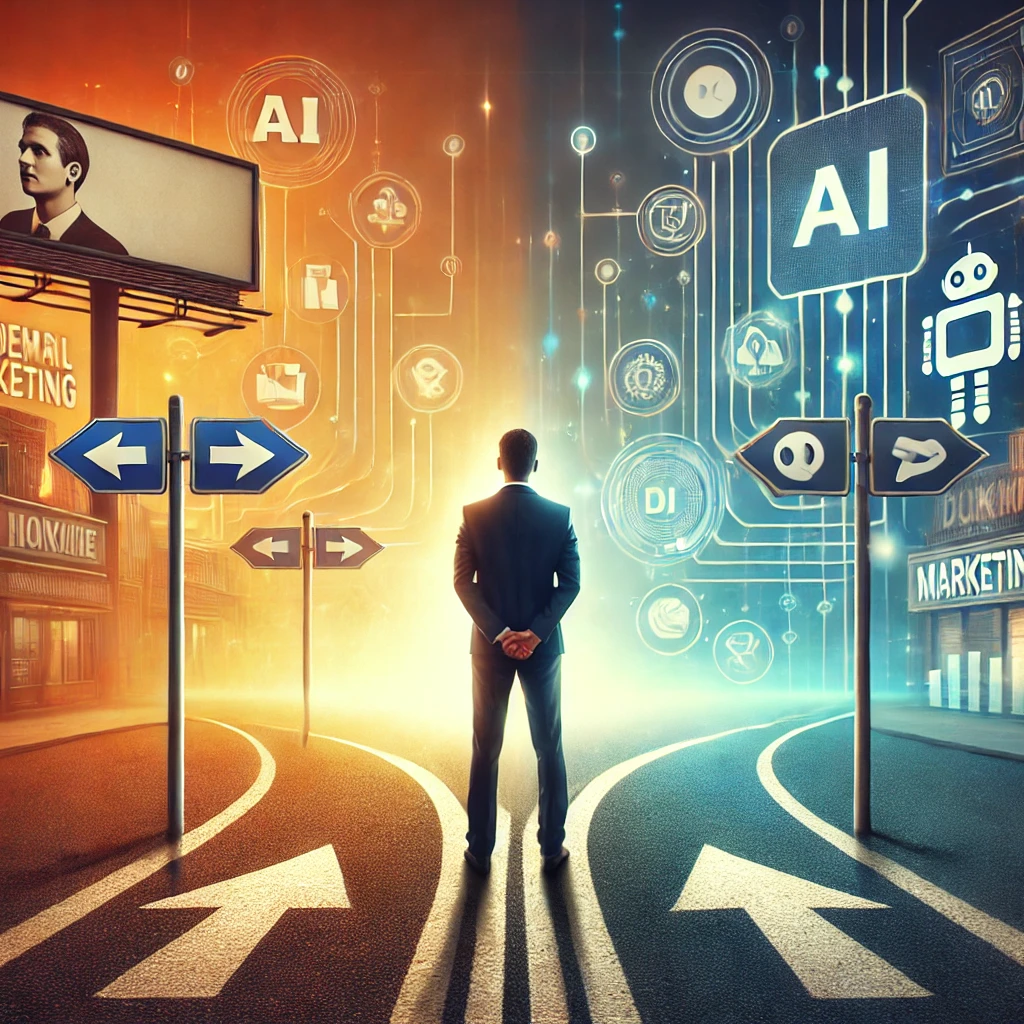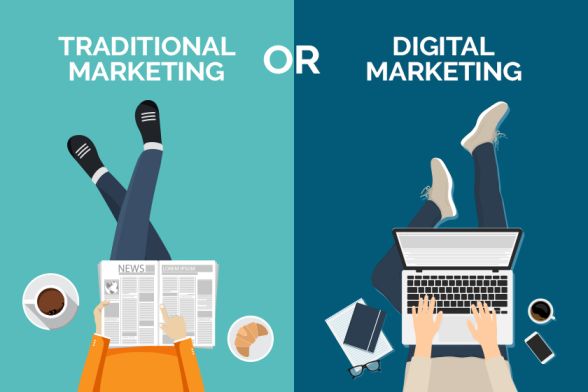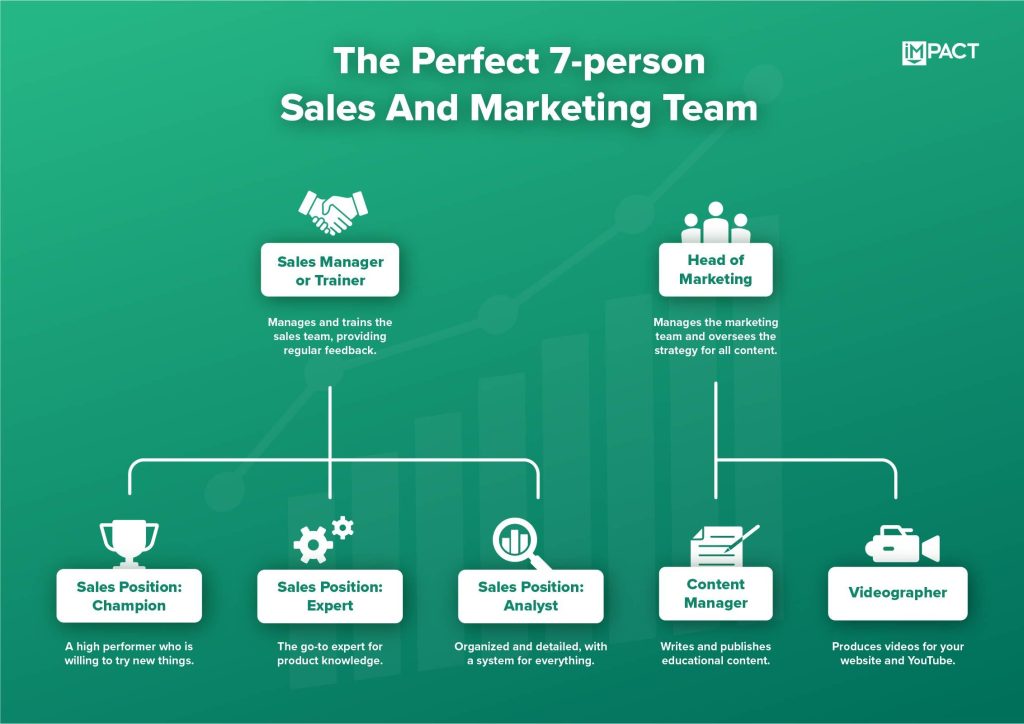The Radical Evolution of AI in Marketing in 2024: Navigating Between Tradition and Innovation

1. Introduction
Marketing has undergone a radical transformation over the past few years; traditional strategies no longer suffice to grab the audience’s attention, as artificial intelligence has revolutionized the industry, introducing new opportunities alongside complex challenges.
2. The Three Pillars of Modern Marketing Perspectives
Today, the marketing world is divided into three main perspectives, each representing a distinct approach to how marketing should be conducted in this era of rapid change and technological advancement brought about by artificial intelligence.
2.1 The Classicists: Clinging to Traditional Methods
The “classicists” hold tightly to traditional methods such as events, trade shows, and creative campaigns; they behave as if marketing hasn’t evolved over the past ten years, disregarding the profound changes brought by artificial intelligence.
They ignore the transformative impact of AI, choosing to remain anchored to past practices; their approach overlooks the significant shifts in consumer behavior and technology that have redefined the marketing landscape.
2.2 The Radicals: Embracing AI to the Extreme
On the opposite end of the spectrum are the “radicals”; they consider traditional marketing methods obsolete and advocate for a complete transformation, asserting that artificial intelligence is capable of performing ninety percent of the work, rendering most human roles unnecessary.
They believe companies could eliminate eighty percent of their marketing teams, relying on AI to execute strategies and tasks once handled by humans; in their view, this radical shift is not only possible but necessary for success in the modern marketplace.
2.3 The Middle Way: Harmonizing Human Creativity and AI
Then there are those who take a balanced approach; people like me view AI as a powerful tool that has transformed marketing in positive ways, enhancing our capabilities without replacing the essential human elements.
AI simplifies our work by automating monotonous tasks, freeing us to concentrate on strategy and creativity; it augments human potential rather than rendering it obsolete, enabling us to develop more sophisticated and engaging campaigns.

3. The Impact of AI on Marketing Practices
3.1 Automation of Repetitive Tasks
AI handles the tedious tasks; jobs that were once time-consuming and dull are now automated, increasing efficiency and freeing time for meaningful work, allowing marketers to focus on creativity and strategic planning.
3.2 Enhanced Data Analysis and Real-Time Insights
AI provides remarkable capabilities in data analysis; humans cannot process vast quantities of data in real time, but AI can, uncovering insights that can be directly applied to marketing campaigns, enhancing their effectiveness and precision in reaching target audiences.
4. The Role of Creativity in the Age of AI
4.1 The Uniqueness of the Human Touch
Even with AI’s abilities, human creativity shines brighter now; AI can produce content, but it often lacks the emotional depth and subtlety that humans contribute, making creativity a highly valued skill in the modern marketing landscape.
4.2 Recognizing AI-Generated Content
Often, we can tell when content is generated by AI; it communicates in a structured, sometimes overly formal manner, lacking the spontaneity and personal touch that human writers naturally incorporate into their messages.
Humans express themselves in spontaneous ways, infusing personality into messages; this uniqueness is difficult for AI to replicate, making human-generated content more engaging and relatable to audiences, which enhances connection and trust.
5. Ethical Considerations in AI Marketing
5.1 Legal Implications of AI Training Data
An unexpected issue arises: many AI tools we use may operate in a legal gray area; they are trained on assets that haven’t cleared copyright barriers, raising significant ethical and legal concerns that we cannot ignore.
5.2 The Debate Over Copyright and Creative Commons
This leads to the debate over copyright and Creative Commons; if AI-generated content is based on copyrighted material, it raises questions about ownership and legality, issues that demand our attention as AI becomes more integrated into our daily workflows and practices.

6. The Future of Marketing Teams
6.1 Redefining Roles and Skills
Future marketing teams won’t require fifty people to be effective; however, this doesn’t mean humans are obsolete. Roles will evolve, focusing on strategy, creativity, and areas where the human touch is irreplaceable.
6.2 Balancing Automation and Human Expertise
Balance is key; automation can handle heavy tasks, but human expertise guides direction. Copywriters, event planners, and strategists remain essential—they must adapt to new tools at their disposal to stay relevant and effective in the changing landscape.
7. Conclusion
We live in a radically changed world, and that’s exciting. AI has opened doors we didn’t know existed. As we embrace these technologies, we must confront the ethical and legal challenges they present.
By finding the right balance between tradition and innovation, we can navigate this new landscape effectively and ethically, ensuring that we harness the benefits of AI while preserving the unique qualities that only humans can bring to marketing.